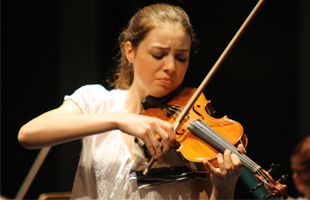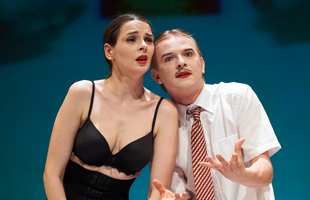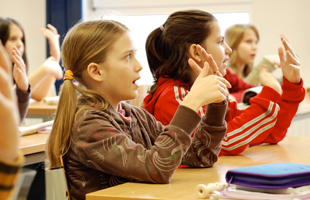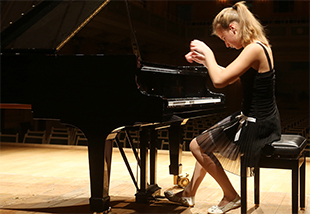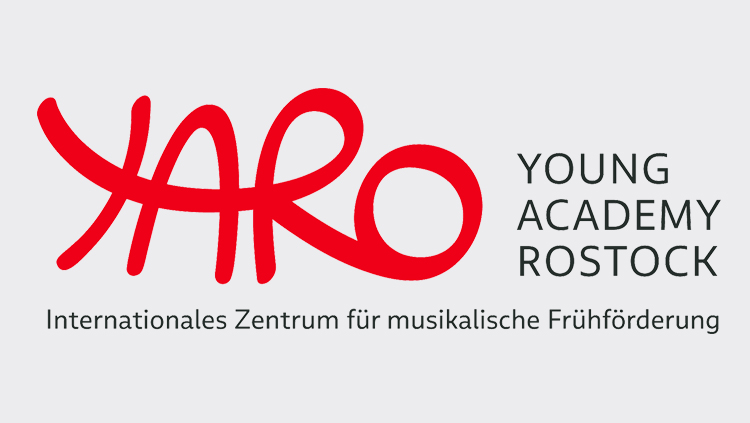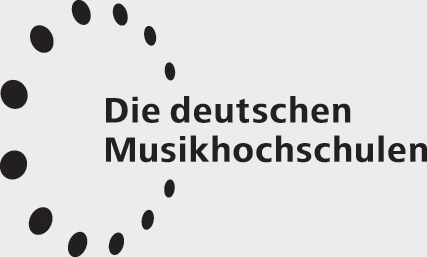Bachelor's Course Singing
Entrance Requirements
Applicants who wish to enrol at the University of Music and Drama have to provide proof of entitlement (normally: “Abitur” – general/specialized higher education entrance qualification or foreign equivalent). As an exception for music studies and on request, this document might be complemented or replaced by a certificate verifying the passed entrance examination to the Hochschule für Musik und Theater Rostock. Applicants also need to have completed their compulsory education or will presumably have done so before they start their studies.
Course Profile
- Official Length of the programme: four years, 240 ECTS-credits
- Start of the course: winter semester as well as summer semester
- Application period: 1 October to 15 November for the summer semester. 1 March to 15 April for the winter semester.
- University Degree: Bachelor of Music
- Teachers
Programme Details
The Major Specialism Modules (“Künstlerisches Kernmodul” and “Obligatorische Vertiefung Kernmodul”, semesters 1 – 8) provide the core of the Bachelor’s course. At the beginning of their studies, students develop and adjust their basic vocal techniques. Furthermore, they expand their piano skills which is useful for comprehending and rehearsing new vocal pieces. Lieder Interpretation is a field of study in which singers learn to interact with an accompanist.
Music Comprehension I, II, and III (“Musikerschließung I, II and III”, semesters 1 – 6) are basic modules during which students learn to approach music as a whole. The module Music Education (“Musikpädagogik”, semesters 1 – 2) comprises lectures providing basic pedagogical knowledge and the Teaching Module (“Obligatorisches Vertiefungsmodul Didaktik”, semesters 5 – 6) builds on it. During the latter, practical school work with learners becomes part of the study. Those students who wish to work as teachers at music schools after graduating, can further develop their pedagogical skills by choosing an optional pedagogical module such as Teaching (advanced studies) or Elementary Music Education (“Vertiefung Fachdidaktik/Lehrpraxis”, “Elementare Musikpädagogik”, semesters 5 – 6). Apart from the mentioned pedagogical modules, the catalogue also comprises modules which aim towards the refinement of artistic skills (for instance Lieder Interpretation, Phonetics) or offer a specialisation (for instance Contemporary Music, World Music). One optional module has to be completed.
The objective of the modules Language, Voice, Movement (“Sprache, Gesang, Bewegung” and “Obligatorisches Vertiefungsmodul Sprache, Gesang, Bewegung”; semesters 1 – 6) is to develop body awareness and to harmonise body gestures and artistic expression. Students also learn to work with partners in stage performance and drama courses and thus prepare for the work on stage. Italian as the main foreign language for singers is studied for 6 semesters.
The advanced study modules in semesters 5 – 8 allow students to expand the knowledge they acquired during the first study period and develop a solid competence. That means with regard to the main subject: Students expand and consolidate their vocal and interpretational skills. The knowledge of musical literature is backed through the module Opera and Ensemble (“Obligatorisches Vertiefungsmodul Oper und Ensemble”, semesters 5 – 8).
The course provides a basis for professional work at theatres, on the concert stage or in vocal ensembles. Some graduates will also teach at music schools. Those students who show qualities that might enable them to pursue a solo career will either join a Master’s programme such as Stage Singing or Concert Singing (and maybe also qualify for the 3rd artistic cycle, “Konzertexamen”) or start their career straight after their degree.
Furthermore, the Master’s course in Music Education provides an interesting option for those students who wish to get a higher qualification as teachers at music schools. After 8 semesters, career opportunities can usually be discussed with the principal instructor who will give appropriate advice.
Foreign students whose native language is not German must provide evidence that their knowledge of German is sufficient for their chosen course.
For the Bachelor’s degree (Singing), students are required to have reached level B2 as defined by the Common European Framework of Reference for Languages.
Applicants’ linguistic competence will be established during the aptitude test.
You will find further information in the Aptitude Test Regulations and Matriculation Regulations (only in German) of Rostock University of Music and Drama.
Please apply via our application website by uploading the required documents and application video by 15th of April for the next winter semester and 15th of November for the next summer semester.
In order to take part in the aptitude test part 1, you need to submit your application as well as one video.
Please send one single video (no cuts) comprising these parts:
- one aria plus one song (video length: max. 10 minutes), performed with or without accompaniment.
The video has to start with a short introduction (your name, your application number, the title of the piece you are about to present). The video has to be filmed in one take and live, which means the material must not be cut or post-edited. There is no need for professional video production. Videos taken with your mobile phone are absolutely fine. However, you should be clearly visible and audible whilst singing. The video should be framed to show the whole person.
You will receive an e-mail with the results of part 1 of the aptitude test. If you have passed part 1 of the aptitude test, you will be invited to part 2 which will take place in June for the winter semester and in January for the summer semester. The exact dates will be published under apply for studies.
Requirements for the aptitude test part 2:
- four art songs, three arias (each from different eras) and two spoken texts (poetry and prose) in German language from memory; they must all be at advanced levels of difficulty.
Duration: at least 10 minutes
You will also have to take tests in your respective compulsory subjects (Piano and Music theory). Additionally, foreign students have to pass a German proficiency test.
We look forward to your application.
Application
Click here for the ONLINE APPLICATION and the DATES OF THE APTITUDE TEST.
A fee of 50 Euro is charged for processing your application for admission. Please transfer this amount when you submit your application.
We will gladly advise you personally!
Mrs Dörtje Peters
Study Office for Music
fon +49 381 5108 220
fax +49 381 5108 201
doertje.peters@hmt-rostock.de
Prof. Fionnuala McCarthy, Head of Vocal
Fionnuala.McCarthyhmt-rostockde
Please visit our University Information Day in April!
Back to DEGREE COURSES


